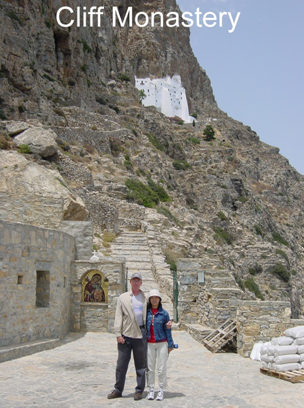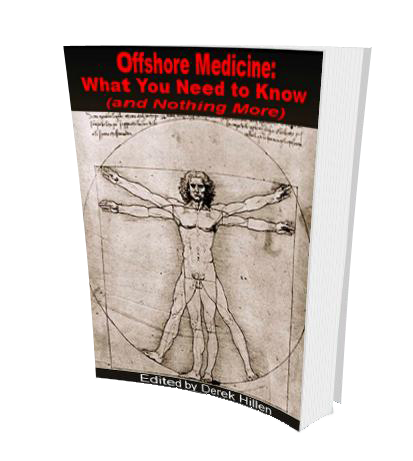- Boat
- Articles
- About
- Tehani-li Logs
- 2004
- Uligan Maldives
- Man, Oh Man, Oman
- Eritrea: The Nicest Place You’ve Never Heard Of
- Cruising Notes: Oman to Eritrea – From Pirates to Cappucinos
- Old Testament Sudan
- Egypt: Legend, Myth and Reality
- Thoughts on Cruising the Red Sea
- Greece: Civilization Again
- Montenegro
- Malta
- Sardinia, Italy
- Barcelona, Spain
- 2003
- 2002
- 2001
- 2004
- Contact
Greece:June 2004
After escaping the evil clutches of Egypt, we sailed to Rhodes, the largest island in the Dodecanese and the extreme south eastern end of Greece. And really enjoyed the stop there. We had heard from countless cruisers before us that the Greeks weren’t that friendly to cruising boats but when we got to Rhodes we found all officials very nice and accommodating.
We were greeted and helped everywhere we went. However, the officials are absolutely clueless about VAT. They repeatedly informed us that as a non- EU boat we could only spend three months in the entire EU!! The current law handed down from Brussells gives you 18 months but the Greeks haven’t heard. It was cheaper to check into to Rhodes than to go to the alternative; Symi island.
We know several cruisers that checked into Greece there after leaving Turkey and had to pay 45 Euros for their mandatory “Transit Log.” Rhodes only charges 30 Euros – but this itself is also illegal as Greece is the only country in the EU in our experience to levy this tax on non-Eu boats.
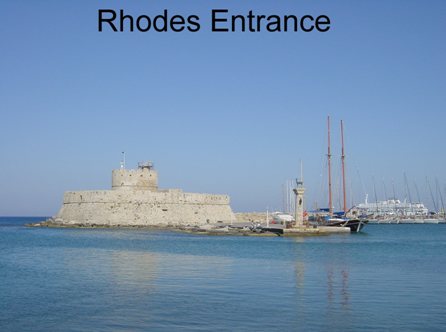
You have two choices for the boat in Rhodes, Mandraki harbor is where you want to be but you can med-moor (stern to the quay) in the other harbor just east of it where the cruise ships are. If you go all the way in there is a quay used for megayachts. Mandraki harbor is where the authorities want you, however.
As you enter Mandraki try and tie up to the floating dock seen on your starboard side. That is the municipal dock and it will cost you about four Euros a day! Electricity is almost free but water is expensive at seven Euros for 1,000 liters. To your port side is the private “marina” and that is from where the charter fleet comes and goes.
It is more expensive, you are blown onto the wall with the prevailing winds, plus you will be asked to move on Friday and Saturday when the fleet comes in. However, you can only get fuel on this side: .85 Euros a liter.
Upon entry, you pass a castle-like fortification and turn in the narrow entrance where a bronze stag standing on a tall pillar on either side greet you. This stag symbol seems to be the symbol of the city as you see it everywhere, even on manhole covers. As you pass between the two Bambis, realize that you are entering an ancient harbor 2,500 years old.
Straddling this entrance stood the Colossus of Rhodes, a 100 foot tall bronze Jolly Green Giant action figure. In its time the Colossus was one of the Seven Wonders of the Ancient World. It isn’t there now but was toppled during an earthquake and sold to a merchant in Turkey who cut it up for scrap hauling it overland using 1,000 camels! That is entrepreneurialism for you.
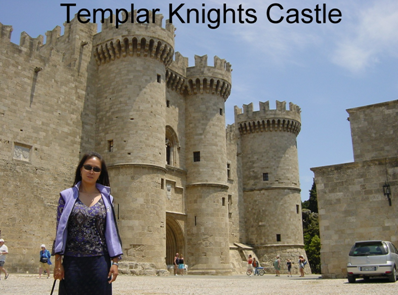
The Old Town of Rhodes is fantastic, built over centuries and improved upon by the Knights Templar, it is now a World Heritage Site. A day or two can easily be spent wandering the twisting cobblestone alleys and byways. In the evenings it is easy to imagine you are walking down the streets of a city over a 1,000 years ago, although most of it is “only” 600 years old.
Most of the old walls, castles and fortifications were built by the Knights of St. John, aka the Knights Templar, a band of crusading Christian fanatics that set up house here in 1309. Johnny Turk came calling 250 years later and cleaned them out. The Knights upped sticks and moved to …. Malta – where we ran into them later. Even though it is very touristed, Rhodes is a big island and there is a lot to see. It is a good intro to Greece.
After crossing the Med, we also discovered another great thing about Rhodes: the cheapest laundries in Europe and they are right by the harbor. Try Star Laundry, our favorite, which amazingly keeps 7-11 type hours and only charges three Euros for five (yes FIVE) full kilos. They will even do all the washing and drying themselves.
I gave them all our running rigging which was as stiff as telephone cable after all the dirt and salt of the Red Sea and Star Laundry happily transformed miles of it into brand new line. For the rest of Europe, be prepared to do it yourself or be ripped-off. Most places do not have any laundromats and if they do they charge by the piece. Several times we paid over $70 for a big bag to wash and dry!! It would have been cheaper to buy new friggin’ clothes. (Don’t ask me why we don’t do laundry on board as Ariel will get very mad).
After relaxing a couple of weeks in Rhodes, we proceeded to head west across the Med. This is generally the wrong way to go as it is against prevailing wind and weather – but what’s new! Our first mission was to make it across the tempestuous and deep blue Aegean. This we did by island hopping our way across to Athens and we had a great time. We sat out the windy days and motored into the calm ones. No dramas and no big deal at all. In fact, get used to being a motorboat with a mast in the Med.
There is virtually NO sailing at all to be had. We have a new term to describe this: “med-sailing,” ie, motoring. You have “med-mooring,” explained above and we “med-sailed” most of the way across Europe. Even if you have a favorable wind (rare to begin with and very rare if you are heading west like us) don’t worry, it won’t last. On the other hand, if you don’t like the weather, wait ten minutes and it will change.
I don’t know how many times we got wind, raised all the sails and turned off the engine to have the fickle breeze immediately weaken and die. I would say this happened almost every single day we were on the water at least two to three times. (From that statement you could correctly deduce that we don’t learn very fast).
On to our island adventures. Our first stop after Rhodes was Tilos. As this is already getting long I will just add some brief notes.
Tilos: 36 24.93 N 27 23.38 E. Small island. Anchored out in clear water but nothing special. Popular with walking tours from the UK and peopled by old English duffers.
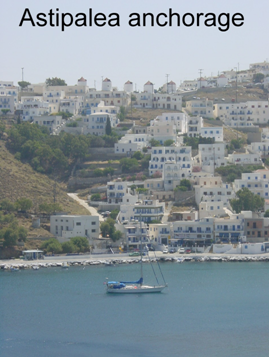
Astipalea: 36 32.87 N 26 21.28 E. Dramatic anchorage with the blue and white town hanging in the air over and around the boat. Wild and untrammled. Rented a scooter. Recommended.
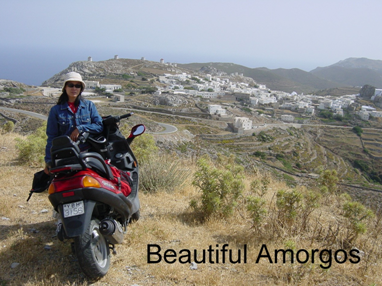
Amorgos: 36 49.76 N 25 51.88 E. This is where the movie, “The Big Blue” was filmed. Anchored far off the quay as a really BIG ferry comes in here daily to deliver about 12 people. You can also med-moor to the town quay further in. This is a pretty spot with two small settlements, one on each side of the small anchorage. We rented a scooter and spent the day wandering around the absolutely amazing and traditional blue and white town, “Chora,” in the hills above the water.
Very typical of the Cyclades and very hilly with twisting narrow cobblestone streets and brilliantly whitewashed houses and churches. A few anchorages around the island looked beautiful, deserted with stunningly clear water. Quiet and beautiful, our favorite stop in the Aegean.
Syros: 37 23.80 N 24 52.57 E. Modern vacation home type place for Athenians. Pleasant enough but nothing special. Ermoupolis, I thought was the nicest city we had never heard of. We med-moored at Finikas Bay on the opposite side of the island and rented a scooter again.
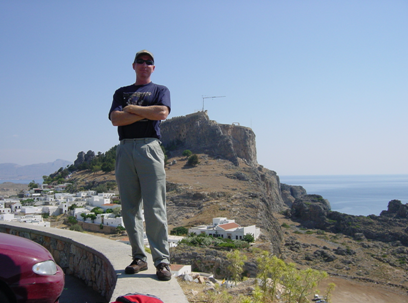
Aegina: 37 44.76 N 23 25.66 E. A busy place and close to Athens. This is a good place for day trips into the city on the 40 minute ferry rides. Smallish harbor and crammed with boats. The wind blows in here in the afternoon so make sure when you med-moor you have PLENTY of chain out. We went bow in the first day and the kedge anchor dragged.
Gel coat damage resulted as Tehani kissed the damn cement quay! Easy enough to repair but irritating nonetheless. Go stern to with all your chain and all your fenders. Again, it is a very busy place. Every day on board I was on and off the boat helping charter boats come and go with their lines so they wouldn’t crash into us.
We spent two weeks in Aegina commuting to Athens to get our radar fixed. The Raymarine RL70 was fortunately still under warranty as we were quoted almost $1,000 by the Greek agent to replace the corrupted CPU in the display. After getting documents faxed over from West Marine, (thank you Pam Wall) where we purchased it 18 months ago, we were finally able to prove our warranty claim.
As a result, the agent, Skordilis, ordered the necessary part from HQ in the UK. Of course all this was going on while Greece was winning every match against all odds in the European Football Championships for the first time ever. Every game the national team played was watched live on TV by every Greek with eyes around the globe and the country came to a standstill.
Greece is a small country of only 3 million souls so for them to actually win a soccer game against ANY country in Europe was something else but to win them ALL one by one was really astounding. During this process our shipment was of course lost and then found and then delayed. So we sat for two weeks in Aegina with the main walkway right behind the boat and the main road right behind that.
All along the road were busy trendy outdoor cafes with HUGE TV screens. Being a Mediterranean country things don’t start happening until about ten or eleven at night. It was noisy every night and when the team was playing and won a game there would be a virtual riot right outside our cockpit: cars honking, people screaming, fireworks and flares going off, people running around wearing huge Greek flags as capes looking like blue and white versions of Batman and Robin.
Good God, we thought, what will happen if Greece actually wins the championship? Will we be safe? And what will happen if they lose? Will we be safe? Unbelievably they did win and the place erupted like a volcano. We captured some of the antics on video and it was pretty raucous. Ariel and I watched the championship game from the cockpit on those huge TV screens I mentioned above. We were of course rooting for Greece and were glad they won but it did delay our radar repair!
During our waiting we made many day trips into Athens for shopping and general touristy stuff. As everyone knows the Acropolis is THE site to see and the most impressive ancient ruins in the western world. It also cost us $33 to go look at them! We have to confess, after the mind-blowing ruins of Egypt which are A) older, B) bigger and C) more impressive; we just didn’t do any more ruin visiting after that. Egypt, for all its faults, spoiled us for archaeological ruins.
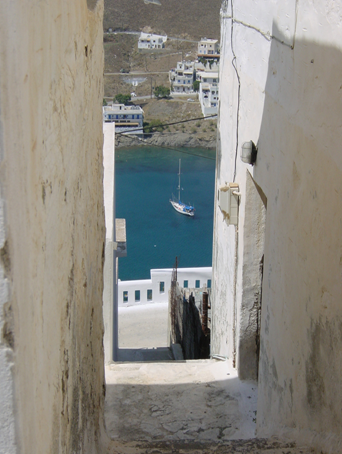
One of the quirks of travel in Greece I would argue is their weird taxi system. For some unknown reason Greeks seem to hold taxis in high regard and approach them deferentially. I say “approach” because they won’t stop! If you need a cab you have to flag one down, so far normal procedure, the driver will slow a bit and roll down the passenger window.
Then you shout your destination and if he feels like going that way he may stop. Otherwise, he just keeps going usually without even acknowledging your presence. It may take 15 EMPTY on-duty cabs to pass you by before one stops. It feels like hitchhiking. Then you get in and tell him again where you want to go and he starts the meter (watch to make sure). While he’s driving you he may decide to pick up other passengers along the way.
You have to move over for them and while your meter is running he’s taking them somewhere pretty far out of your way. He charges that passenger as well as you. So you pay for a cab but you don’t get a cab, you get a bus. It’s a rip-off and the only reason people here must put up with it is because there aren’t enough cabs?But cabs seems to be everywhere….. Maybe it’s a European thing, we’re not sure. For example, nobody can explain to us why Europeans love high taxes. Gasoline is between $4 and $5 a gallon and 90% or more of that is tax.
Usually a bastion of straight common sense, The Economist magazine takes the silly and indefensible point of view that European fuel costs (taxes to you and me) are not too high compared to the United States but that fuel in the US is too cheap! Using that “logic” I guess pollution is a good idea too because otherwise the sky would be too blue and the water is just too darn clear and who needs all those slimy fish anyway? They argue and have argued for years that improved infrastructure is the result of the “user’s tax” on fuel.
I don’t know about that. The roads here SUCK. Where’s the money going? It all means that whatever you want to buy costs more right across the board.We are also enjoying Greek food. I have always been a fan and Ariel likes it too. This is a good thing too because they’re ain’t nothing else here to eat! I have only seen one Italian restaurant and I think it was in Athens.
I mean Italian restaurants are usually EVERYWHERE and not only that it is the big country right next door! Greek food uses simple ingredients and they are usually fresh so we aren’t tired of it.
No matter where we go it is always the exact same menu, which is really strange. Even commie China in the old days had more variety (on the menus at any rate). You have a choice of Greek salad, or other “salads” which are usually pureed veggies of some sort so we stick to the traditional Greek salads, which have no lettuce by the way, and are served with a huge slab of feta cheese on top. Lots of onions and vinegar and olive oil cover very pungent olives with pits which really wakes up the taste buds.
After starting with that, you have a choice of moussaka (an eggplant lasagna type dish) or souvlaki (a Greek taco in a folded pita), one or two other meat dishes/stews and that’s it. Moussaka ALWAYS costs 5.50 Euros and the Souvlaki plate ALWAYS costs 6.50 Euros, whether in an out of the way hole in the wall or right in the middle of restaurant row downtown.
We haven’t figured out how they do it but prices have been identical from Rhodes in the south eastern part of the country (Miami) all the way to Corfu in the north west (Seattle). We generally eat out once a day and usually save that for dinner in an outdoor restaurant sitting at little tables on the town square under real grape vines watching the sun set and the locals walking about, kids playing, etc. It is very civilized. That is what is going on in the restaurants but the real Greek diet is a little different, however.
We have been tying up to town docks right in the center of things most of the way across Greece giving us a privileged view onto what the Greeks are really up to day to day. Breakfast, as far as we can determine, consists of two cigarettes and an iced coffee. A big breakfast would be five cigarettes and two iced coffees (I have been taking notes the whole way).
Then there is the mid-morning break: iced coffee and 2-3 ciggies. Lunch is a bigger affair: one iced coffee and a pastry finished off with three cigarettes. Mid-afternoon everyone takes a break. No points for guessing what it is: iced coffee and more ciggies! Then there is the evening routine which, if you are an old fogy, would mean Ouzo (a licorice tasting liquor and it is the supposed national drink), the young and trendy stick with more ciggies and more iced coffee because dinner isn’t until around 10 PM anyway.
After dinner – you already know that means moussaka or souvlaki – there is a choice of iced coffee or beer followed by some ciggies. Empirical evidence suggests THAT is what most people seem to live on anyway! This country runs on caffeine and nicotine alone.
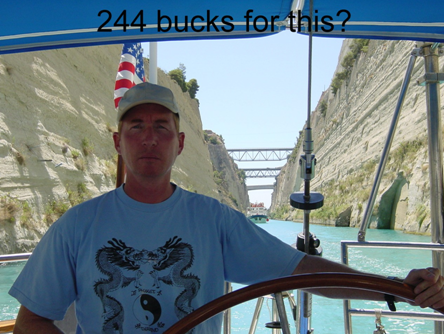
After wandering around Athens for two weeks we (Ariel) decided to go through the Corinth Canal rather than going around the Peloponnese penninsula – a much longer route to the Ionian Sea. The famed canal took $244 and half an hour to transit! This is the most expensive canal in the world and it wasn’t much less than what we paid for the Suez which took two full days to complete! They calculate the fee on LOA (Length Overall) only. Pay with credit card.
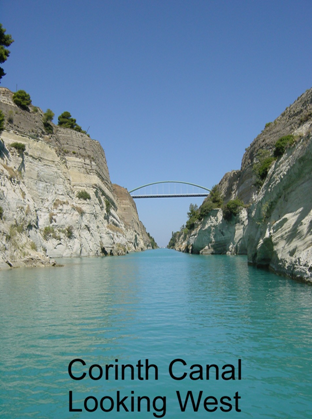
After that it was more island hopping up into the north east of the country. Here are our notes.
Trizonia: 38 22.08 N 22 04.54 E. Nice little island and a yachtie hangout. Many leave their boats here to fly home for the season. It even has a “yacht club.” Very yachtie friendly with a BIG protected marina. We anchored out in the pretty anchorage. Cute town. A must stop.
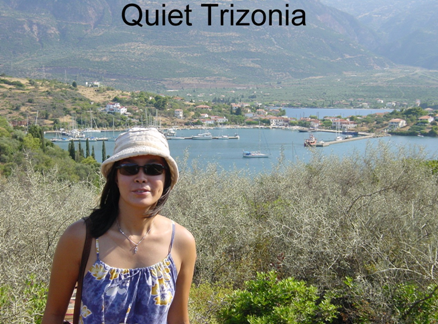
Paxoi, Lakka Bay: 39 14.37 N 20 08.00 E. We pulled in here to meet friends, Buddy and Ruth on Annapurna – who had just left! It was very shallow and very crowded. The water is beautiful but a big squall came up at 0130 from the wrong direction. The place was a death trap so we fled and spent an uncomfortable night at sea. Very pretty place in settled weather. Famous for olive oil.
Corfu, Garitsas Bay: 39 37.17 N 19 55.72 E. Dramatic anchorage under the castle but a bit rolly when the big ferries go by. Corfu is GREEN and very pretty. We have only been here two days but think this is one of our favorite stops. Count your change in Greece, particularly in this place. We were overcharged twice here. At restaurants the old trick is for the waiter to come out after your meal and just tell you the total.
Get him to write it out – surprise! He was wrong the first time and it WASN’T in your favor. Corfu is also the most expensive place on planet Earth to get your laundry done. They wanted three Euros ($3.70) to wash a friggin’ T-shirt. For that kind of money I should go into the business.
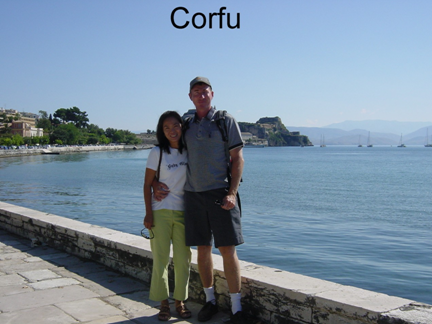
Lastly, you can get weather off the internet and via SMS on your phone! The most accurate is “Poseidon Weather.” Google that. For an instant forecast for your position SMS the following message: W GPS 39 37 19 55. (Our current position in Corfu). Then send it to this number; 4264. (Which spells “HANG”).
It costs only 25 cents and is very useful. Having crossed the country, our experience with the wind is this. Watch for the meltemi blowing from the N and NW across the Aegean. Closer to Athens you have land/sea breeze only. In the Gulf of Corinth and the Gulf of Patras, wind comes from NW, much less at night. Even with 20 knots on the nose, though, the seas are small so you can still make good progress – nothing like the Red Sea.
All our stops were free except where we tied up to town quays. Then the cost averaged 4-5 Euros a night which is a screaming deal. Backpackers eating beans out of a tin pay more to pitch a tent on the beach.
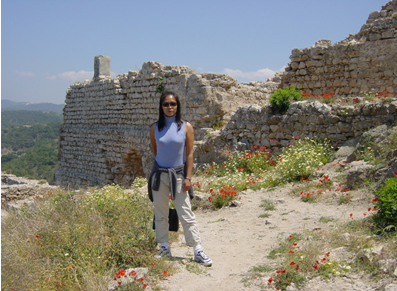
Finally, after rowing everywhere since our Yamaha 15 HP outboard for the dinghy was stolen (thank you, Sudan) we have finally bitten the bullet and purchased another outboard. For almost double the price of the Yamaha 15 (don’t forget those European taxes) we are now the proud owners of a Suzuki 4 HP (four horsepower vs. 15). This one is a four stroke vs.
the Yamaha which was a two stroke job. That should mean we get better fuel consumption and make less noise. It will be enough to push us around in our big dinghy at walking speed but the days of joyfully planing and zipping around anchorages are OVER!
We checked out of Greece in Corfu. The officials were very professional and extremely detail oriented. For the first time we were asked if we had insurance (we do of course) AND they wanted to see the policy. They also asked if we had any sailing license from the US! We explained that there isn’t such a thing.
And that if we didn’t have some small measure of competence we certainly wouldn’t have made it to Greece in the first place. “How do I know that?” was the guy’s response! Not hired for brains that’s for sure. Anyway, they checked us out and let us go without any other fees.
We have had trouble updating the website in Greece. It has to do with the parlous state of internet cafes in this country. First, they are very few and far between. Second, almost none of them (including the very few in Athens proper) have CD ROM drives which we need to upload all our pictures. Third, most don’t even have floppy drives that work and NONE so far seem to have printers that work either.
It has been a real third world experience from that angle. This leads us to believe that Greece is way behind the rest of Europe as far as internet penetration is concerned. Our next stop is Montenegro in the Adriatic.
